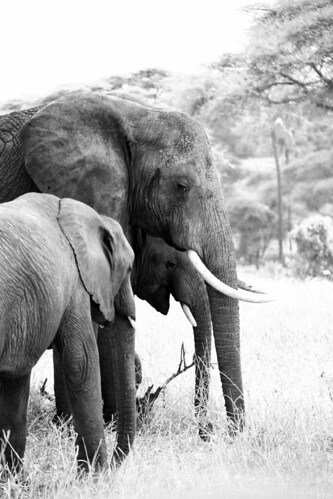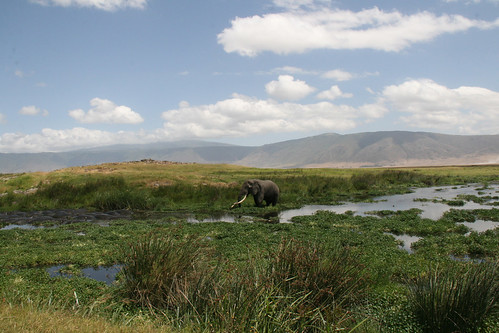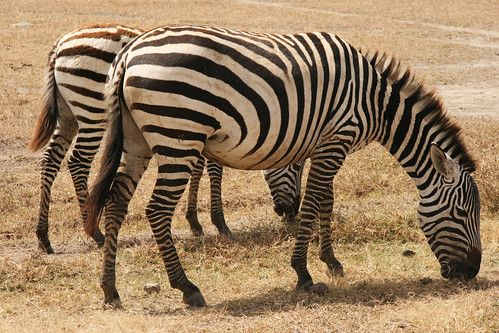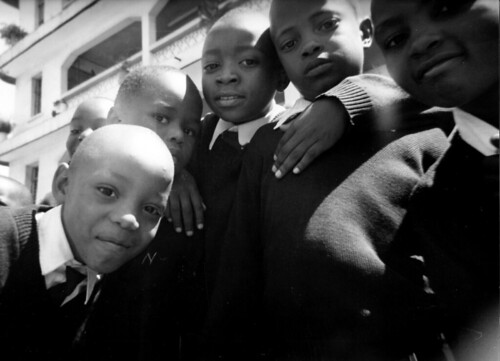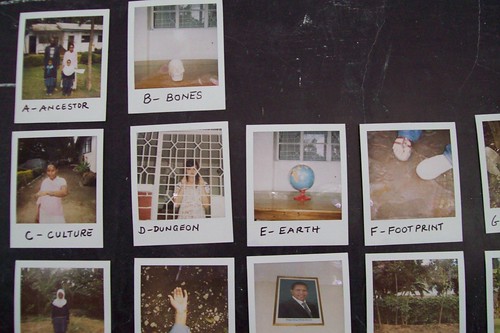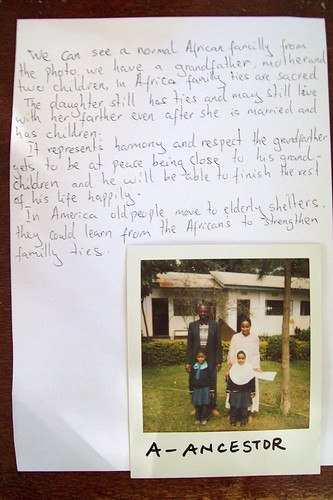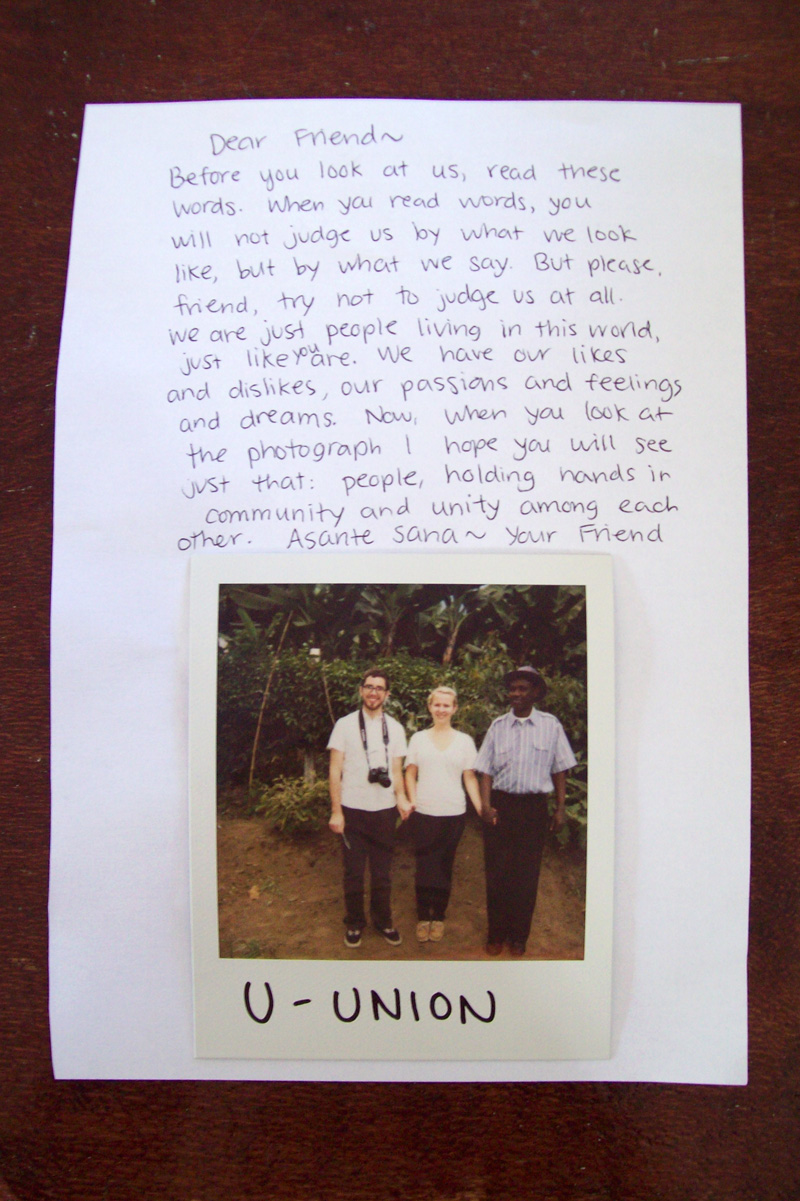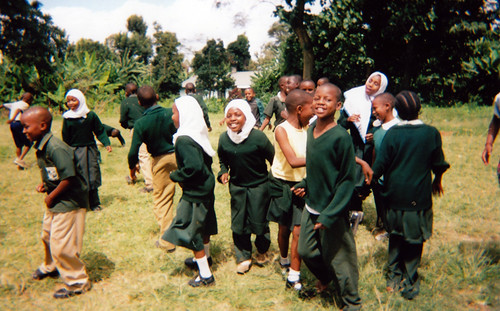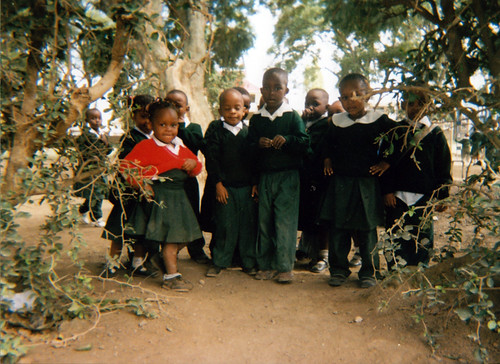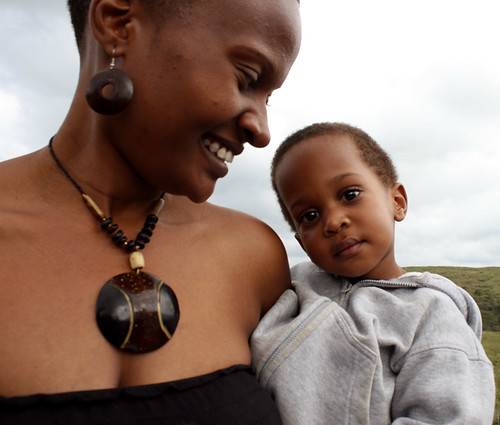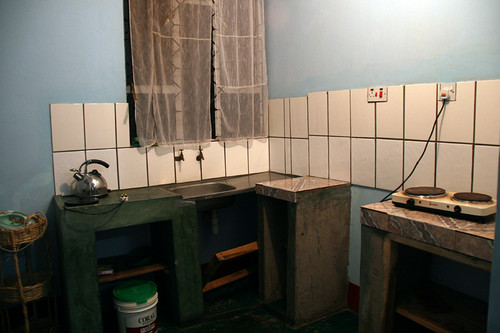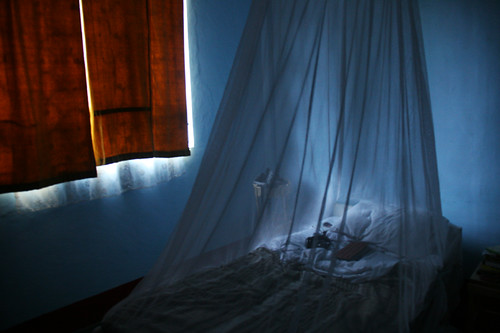“As photographers and writers, we are observers and recorders of the world, real and imagined. Who we are and where we stand when we watch the world determines how we see and what we record.”
~ Wendy Ewald
Wendy Ewald’s work is something incredible to me. Throughout every reading, I found myself underlining and highlighting often, going through color after color in my box of pens. At times, I had to resist the urge to highlight everything in a paragraph. So much of what she writes about, especially her attitudes toward childhood and education, pertain to the things that truly interest me the most, the things which I am most passionate about: children and art forms and free expression. With Literacy Through Photography, she fuses all these concepts into one project. I had heard about LTP and understood what it was about on a basic level, but after reading the assigned passages, I am in awe of the material I am delving into. Reading can sometimes be a dry task, but I read every word of the Portraits & Dreams and Secret Games excerpts as if drinking cold water on a sticky warm day, or hot green tea on a winter afternoon (a more appropriate and palpable comparison for current weather conditions!)
Visual recollecting has always been an extremely beautiful and essential thing for me. Whether through the camera lens or paintbrushes or pen on paper, the most noticeable theme is a recollection of the visual, of what I see in my world. I have written about events, people, situations, but especially about feelings and emotions. When people ask me if I write, I usually say no, because I never sit down with the intention to formally write. It comes to me at moments when I feel something huge or see something interesting or troubling or breathtaking. I catch my breath between the words I scribble out. I usually like to write with pens on paper, because when I see my handwriting, I am even more confident in my individuality. As Ewald says, the way we see is unique. The same way that I see the way that only I see, I write the way that only I write.
There is undoubtedly something in the quality of sight that is remarkable – not to say that the other sensory perceptions are less remarkable but merely that I will focus on sight for the time being. “Seeing comes before words. The child looks and recognizes before it can speak.” As I child, I was always looking around me. I was fortunate to be surrounded by overwhelmingly positive visual stimulation and encouraged toward free expression, enthusiasm, and openness. That was my experience, which I am able to share with the world, but what of the thousands, millions, billions of experiences of other children around the world?
What we find is that children are encouraged less often than we (LTP enthusiasts, perhaps) would like to explore and own their experience. There’s this unspoken pressure on children to be more passive because of a fictional ideology that says they serve no “real purpose” in society. Sometimes in the case of privileged children, it’s that “bubble” Ewald talks about, that “frightening comfort zone” that is safe but limiting. In solution she saw it as her job to recognize the uniqueness of each child’s vision, nurture this vision, and acknowledge that it is THEIR experience which they can actively participate in and explore.
Ultimately, the overall message of Ewald’s work can be applied to all age groups, all people. In theory, “adults” become victim to that passive existence as well, perhaps even more so than children. The media and the world governed by the “spectacle” have produced people who are less and less likely to explore their world. Finding truths out for oneself has become replaced by spoon-fed “truths” fueled and reinforced by mass media and powers that control popular visual culture. It’s times when the complexities and doldrums of such life get me down, and I return to the basics: nature, small pleasures, silence, and quiet meditation.
I will admit that I was expecting this first reflection to be easy to write, but in writing here, I realize that I am slightly dissatisfied. There is just so much I’d like to say and comment on, so many neglected notes scribbled in the margins, so many thoughts that have not been manifested onto this sheet of paper, that I feel like there are holes everywhere. You will read what I have written, but there are still so many thoughts swirling around inside my head. My frame isn’t big enough to fit my whole story, but then again no medium will ever be big enough to fit a person’s entire collection of thought. Ewald’s words are reassuring though:
“If you’re far enough away to see everything, you’re too far to understand anything.”
Maybe expression is just that: a tiny glimpse of what the person is really about, and the glimpse will never get bigger because no one’s head is really that simple. And you’ll never need to feel sorry about what you don’t see or know, because what you see is what someone chose to show, and that should be enough. Sometimes we just don’t know we have that much in ourselves, as Ewald saw in the case of some children she encountered. In such a case, all we need is to be able to recognize and understand that all of us have something to say, and that the powers to say so are in our own hands.
So perhaps the urge to release more thoughts onto paper will become too overwhelming and another moment will come along and spark me to write it or photograph it or paint it or doodle it, breathing between each word, each click, each stroke, each line ~ returning to the rhythms of the soul and of the universe. . . like those kids in Appalachia, breathing themselves through the lens into the face of a total stranger such as myself. I will probably never meet Denise Dixon or Allen Shepherd or Robert Dean Smith, but for a moment they have lived right there before my eyes and I have seen their faces.
~
Written this past January for my Literacy Through Photography class. A little bit of background/my initial thoughts about LTP.

